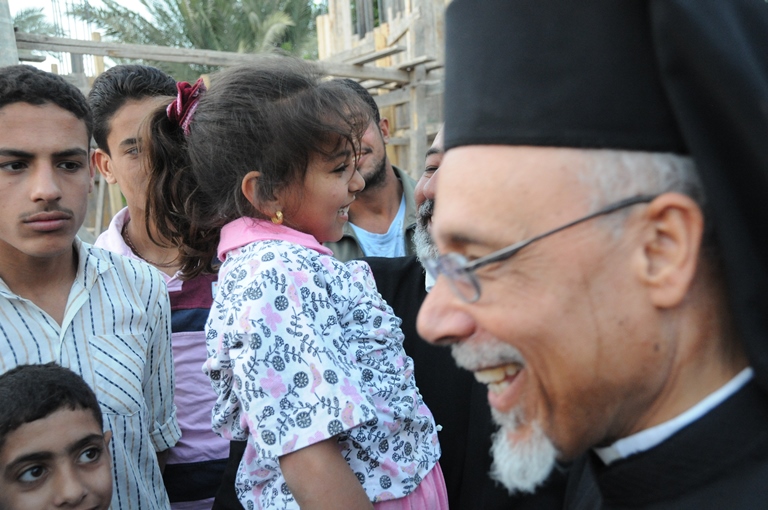|
Egyptian bishop looks to parliamentary vote to speed up church construction approval process
Monday, October 19, 2015
"We don't want special rights but equal rights as citizens. We no longer want to be second-class citizens."
By Oliver Maksan
CAIRO—On the eve of parliamentary elections that got underway Oct. 18, 2015, a
leading Egyptian Catholic prelate expressed optimism about the outcome of the
vote with regard to the status of Christians in Egyptian society.
Coptic Catholic
Bishop Kyrillos William Samaan of Assiut, in an interview with international
Catholic charity Aid to the Church in Need, said: “We hope that we will have a
good Parliament. It is important to have a civil state without extremist
tendencies. I believe that the chances are good that we will achieve this kind
of majority.” The bishop also expressed his hope that religious extremists,
belonging, for example, to the Salafist al-Nour party, will not succeed in
their bid to join Parliament.
Bishop Kyrillos
stressed that “the Church does not prescribe to its faithful for whom they
should vote. We encourage the people to take part in the elections, but they
are free to vote for whomever they feel will best represent their interests.” The
bishop noted that there is a very large number of candidates—among them also
Christians. In fact, electoral law requires that electoral lists also include a
certain quota of Christian candidates.

The bishop
identified the passage of a new law streamlining the approval process for
church construction to be the most pressing concern for Christians in the
country. The Christian Churches of Egypt have drawn up a joint proposal for the
reform of the building permit procedure. In contrast to mosque construction, up
until this point, the approval process for the construction of Christian places
of worship includes so many hurdles that construction projects have faced
decades of delay.
“The Parliament
must address this [issue], if not in its first session, then very soon. We hope
that [the new law] will get a majority. Apart from this, we want to ensure that
we Christians are treated just like any other Egyptians. We don’t want special
rights but equal rights as citizens. We want the principles of the constitution
to be reflected in the laws that will be passed Parliament. We no longer want
to be second-class citizens.”
The parliamentary
elections are the final chapter in the political reform triggered in the wake of
the military’s July 2013 ousting of the Muslim Brotherhood’s Mohamed Morsi as
president. Egypt has not had a Parliament since 2012. President Abdel-Fattah Al-Sisi,
who was elected last May by a large majority, has since been governing the
country solely with the legislative powers of his office.
About ten per
cent of Egypt’s inhabitants are Christian. The vast majority belong to the
Coptic Orthodox Church. Most of the approximately 250,000 Egyptian Catholics of
the country are members of the Coptic Catholic Church.
Aid to the Church in Need has been helping the Christians in Egypt for years. Since the beginnings of
the political upheaval in early 2011, more than $3.5M has been granted for
projects, including the construction of churches, the training of priests and
the provision of pastoral care for youth.
Bishop Samaan meets the faithful; ACN photo
|